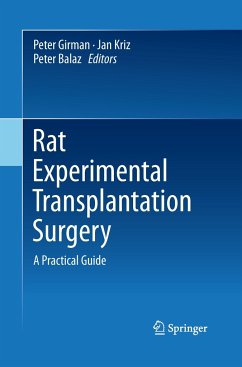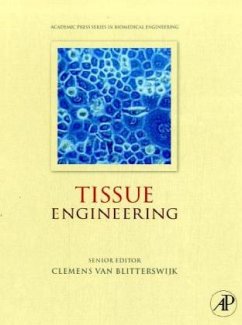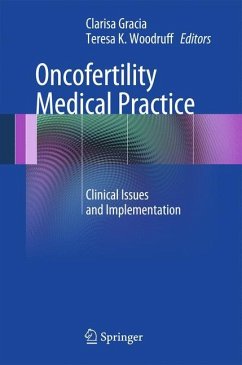
Essentials of Tissue and Cells Banking

PAYBACK Punkte
53 °P sammeln!
It has been 10 years since the first edition of 'Essentials of Tissue Banking' has been published. There is still relatively little published on the technical and scientific principles on routine tissue and cell banking based on scientific principles. The 1st edition was very successful and, after a 10 year gap, there is a need of an update and an expansion of the book's remit.The format of the book follows that of the previous edition- split into 5 sections. Management of donors and the banking of common tissues and cells; Principles of storage and processing of tissues and cells; Ensuring th...
It has been 10 years since the first edition of 'Essentials of Tissue Banking' has been published. There is still relatively little published on the technical and scientific principles on routine tissue and cell banking based on scientific principles. The 1st edition was very successful and, after a 10 year gap, there is a need of an update and an expansion of the book's remit.
The format of the book follows that of the previous edition- split into 5 sections. Management of donors and the banking of common tissues and cells; Principles of storage and processing of tissues and cells; Ensuring the safety of the products by testing the donor, the tissues and the environment, supported by a quality system and an IT infrastructure- all working within the constraints of current regulatory and ethical environments.
This edition however provides a significant update. Many the chapters have been completely rewritten by different experts. Like the 1st edition, they were given a free hand in the way they wrote their chapter, with a guideline that they had to be concise, clear and up to date. The authors were also asked to provide the scientific and technical basis that provides the rationale of the processes they describe. Also, the scope of the book has been somewhat extended. In view of the fact that many cellular therapies are now routinely practiced, 2 new chapters have been added: one on the banking of haematopoietic stem cells and one on human embryonic stem cells. They have been deliberately chosen to illustrate the extreme spectrum of cellular therapies from one of the simplest to one of the most complex.
The intention of the book has remained the same: to cover and update banking of current practices in essential tissue and cell banking. It is therefore hoped that by keeping the book as concise and up to date as possible, it will find a place on the shelves of many tissueestablishments.
The format of the book follows that of the previous edition- split into 5 sections. Management of donors and the banking of common tissues and cells; Principles of storage and processing of tissues and cells; Ensuring the safety of the products by testing the donor, the tissues and the environment, supported by a quality system and an IT infrastructure- all working within the constraints of current regulatory and ethical environments.
This edition however provides a significant update. Many the chapters have been completely rewritten by different experts. Like the 1st edition, they were given a free hand in the way they wrote their chapter, with a guideline that they had to be concise, clear and up to date. The authors were also asked to provide the scientific and technical basis that provides the rationale of the processes they describe. Also, the scope of the book has been somewhat extended. In view of the fact that many cellular therapies are now routinely practiced, 2 new chapters have been added: one on the banking of haematopoietic stem cells and one on human embryonic stem cells. They have been deliberately chosen to illustrate the extreme spectrum of cellular therapies from one of the simplest to one of the most complex.
The intention of the book has remained the same: to cover and update banking of current practices in essential tissue and cell banking. It is therefore hoped that by keeping the book as concise and up to date as possible, it will find a place on the shelves of many tissueestablishments.












